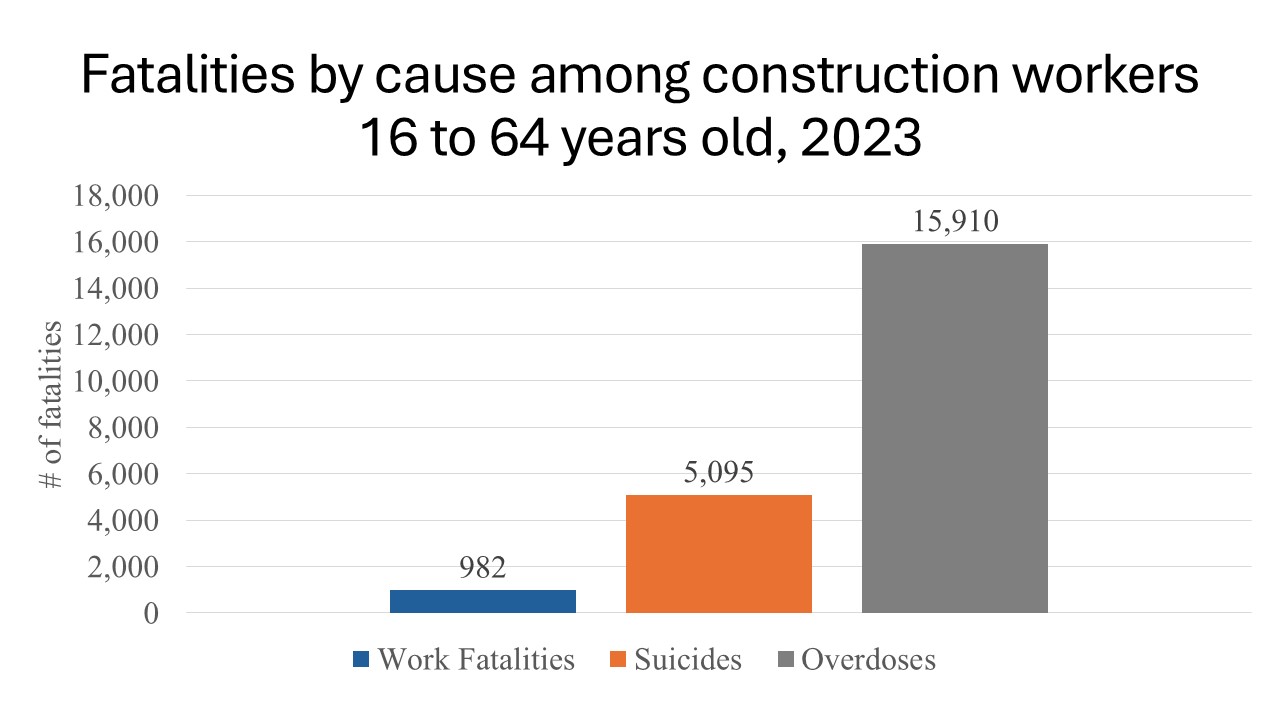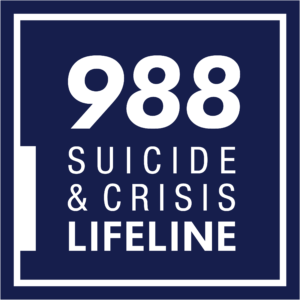 Construction workers have significantly higher rates of injuries, fatalities, death by suicide, and overdose deaths than American workers overall. For example, although construction workers are only about 7% of the entire workforce, they were 20% of on-the-job fatalities and 16% of opioid overdoses. As the chart to the right shows, in 2023 there were 982 fatal injuries among construction workers — and 15,910 fatal overdoses and 5,095 suicides.
Construction workers have significantly higher rates of injuries, fatalities, death by suicide, and overdose deaths than American workers overall. For example, although construction workers are only about 7% of the entire workforce, they were 20% of on-the-job fatalities and 16% of opioid overdoses. As the chart to the right shows, in 2023 there were 982 fatal injuries among construction workers — and 15,910 fatal overdoses and 5,095 suicides.
CPWR has developed free, practical tools — including toolbox talks, infographics, hazard alerts, and training programs — to help prevent opioid overdoses and suicides and to improve worker well-being. We’ve contributed to the peer-reviewed literature on these topics as well. These tools and research outputs are available on the following pages, which also offer important resources from others.
- Resources to Prevent Opioid Deaths in Construction
- Resources to Prevent Suicide Deaths in Construction
New Newsletter on Addressing Suicide and Opioids
NABTU and CPWR have launched a newsletter to help the construction industry prevent suicides and deaths from opioids. REASON (Resources and Effective programs Addressing Suicides and Opioids Now) responds to these pressing issues by sharing comprehensive solutions, important research, and free resources that highlight positive steps being taken.
Subscribe now to receive future issues and read the previous ones:
- Issue 1 (May 2024) — Peer-to-peer support
- Issue 2 (August 2024) — Increasing access to naloxone
- Issue 3 (December 2024) — Trades Embrace Getting the Word Out about Mental Health
- Issue 4 (February 2025) — Three New Studies to Reduce Construction Worker Deaths from Suicide and Opioids
If you or someone you know needs immediate help, please contact:
 National Suicide Prevention Lifeline— a free and confidential (U.S.) resource that connects individuals with skilled, trained counselors 24/7. Call 988 or 1-800-273-TALK (1-800-273-8255)
National Suicide Prevention Lifeline— a free and confidential (U.S.) resource that connects individuals with skilled, trained counselors 24/7. Call 988 or 1-800-273-TALK (1-800-273-8255)
Use the online Lifeline Crisis Chat
or or reach out to the Crisis Text Line by texting “HELLO” to 741741 to connect with a crisis counselor.